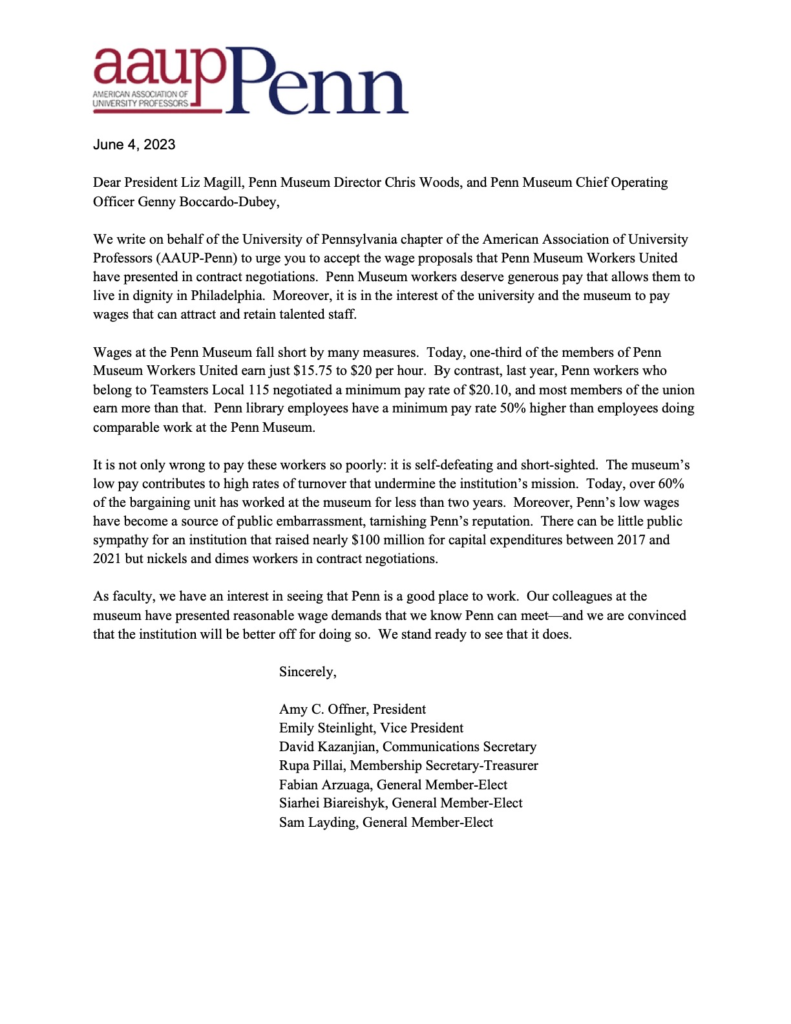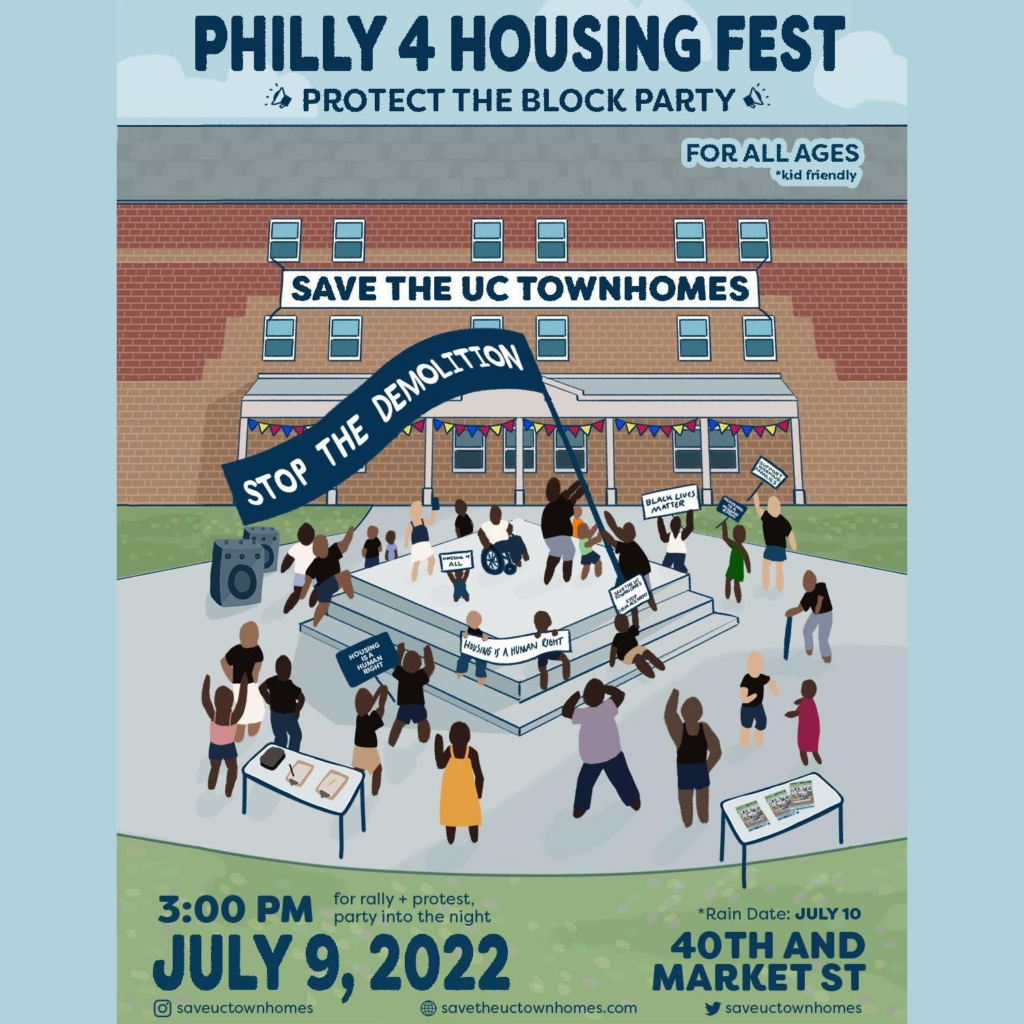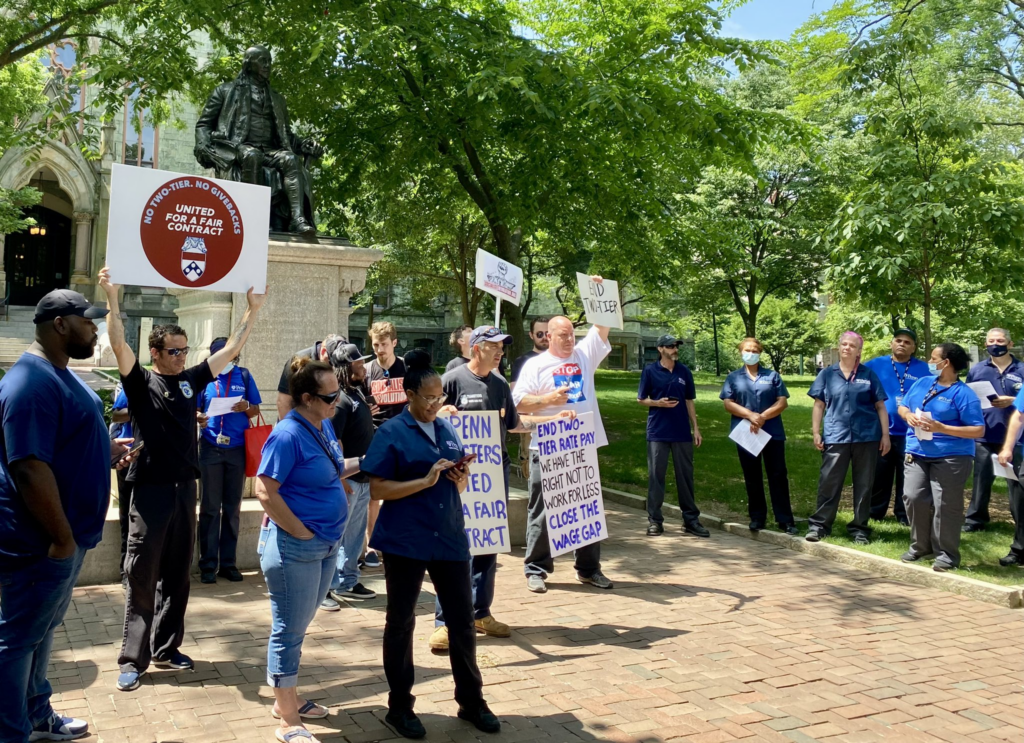Dear Penn Community,
Penn’s AAUP chapter welcomes all Penn community members back for the 2022-23 year! Please reach out to us at aaup.penn@gmail.com, and please mark your calendar to attend our first general meeting of the year, scheduled for 11am – 12:00pm on Friday, October 14: https://upenn.zoom.us/j/98007289840. We’ll discuss, among other things, plans for a compensation survey focused on contingent faculty in connection with the “Who Teaches at Penn?” project, political education for undergraduates about contingent faculty working conditions to broaden our base of support, and any new issues you want to raise. The elected members of our chapter’s Executive Committee are listed below, and we are eager to work with you this year!
AAUP–Penn represents all Penn faculty, and we take “faculty” in its most expansive sense: all those who teach or research at Penn, including tenure-track and non-tenure-track faculty, full-timers and part-timers, librarians, grad workers, and postdocs. If you do the work, then you are faculty, regardless of titles assigned by the administration, and without concern for hierarchies imposed from on high. As we have learned in our efforts over the last two years to improve pandemic-era working conditions, to advocate for greater equity and job security for all instructors, to make institutional governance inclusive and collective, to push Penn to pay its fair share in local taxes, and to defend local residents against gentrification, the best way to improve our living conditions is to use our collective strength to fight for all our working conditions and the lives of our diverse communities.
The last few months have been busy, so here are some updates!
In June, AAUP affiliated at a national level with the American Federation of Teachers, AFL-CIO. All AAUP members are automatically AFT members, and while we retain our independence we also add to our strength across and well beyond higher education.
Two AAUP/AFT chapters just reached tentative contract agreements after difficult negotiations, at Eastern Michigan University and Rider University—back in the classroom with great student support, stronger because together! Another, at the New School, is currently working “overtime” to help their unionized colleagues secure basic, fair working conditions.
The fight to preserve the UC Townhomes at 40th & Market as subsidized, affordable housing continues to gain momentum. Residents are calling on Penn, Drexel, area hospitals, and the City to contribute to a preservation fund to help acquire the site. Recently City Councilmembers Helen Gym and Kendra Brooks issued a statement in support of residents’ right to remain in their homes.
You can also read our article on contingent academic labor at Penn and on the threat of casualization to higher ed more broadly in this year’s Penn Disorientation Guide. Over the summer, in addition to standing with campus and local unions in several contract rallies, we held two Labor Solidarity Happy Hours with Penn and area union members to learn more about each other’s campaigns and as a first step toward building coalitions to support organized workers on our campus and around the city.
Last but not least, every THURSDAY we will host weekly AAUP-Penn happy hours outside at New Deck Tavern on Samson Street from 4:00-5:30pm. All AAUP-Penn members and friends are welcome, so please come if you can!
In Solidarity,
AAUP-Penn Executive Committee
- Chi-ming Yang, President
- Jessa Lingel, Vice President
- Rupa Pillai, Treasurer
- David Kazanjian, Communications Secretary
- Heather Hughes, General Member-Elect
- Fabian Arzuaga, General Member-Elect
- Sam Layding, General Member-Elect
















